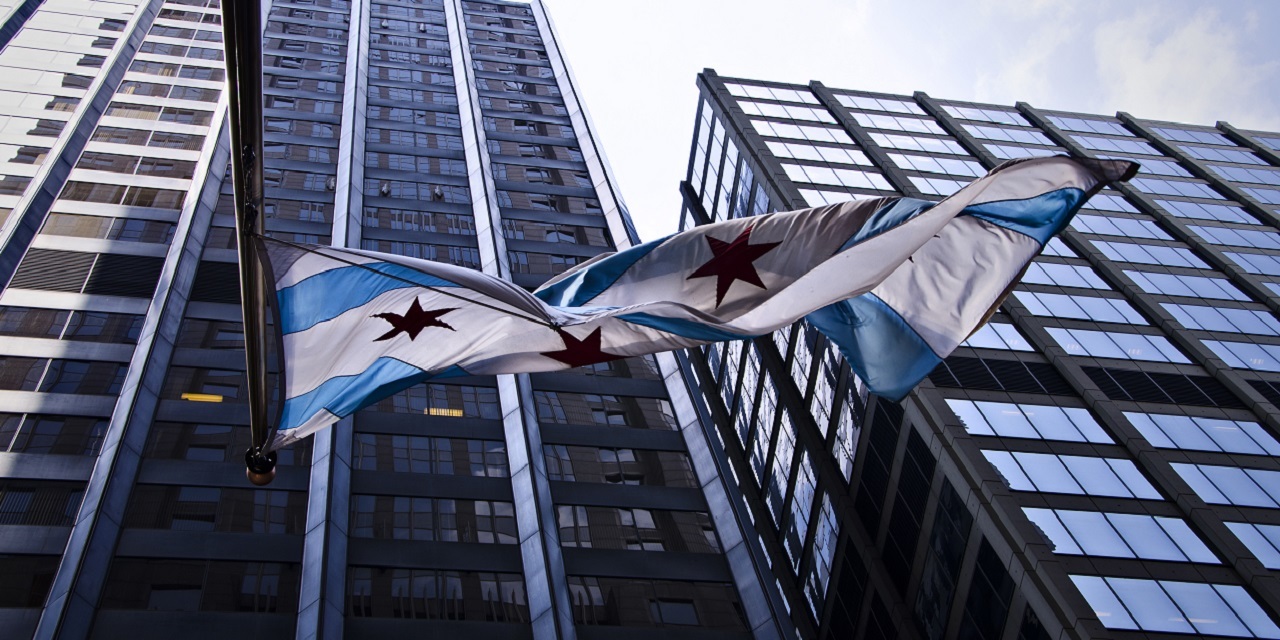The city of Chicago cannot require car rental businesses located outside city limits to collect city taxes on rental cars leased by Chicago city residents, the Illinois Supreme Court has ruled, striking down as unconstitutional a city ordinance seeking to slap a tax on cars rented within three miles of Chicago city limits.
On Jan. 20, the state Supreme Court overturned the decision of a state appeals court, which had declared the city had the power under the Illinois state constitution to demand the tax, even though the rental transactions took place entirely outside of Chicago city limits.
The Supreme Court justices, however, said the tax represents an attempt to improperly stretch the city’s “extraterritorial” taxing power beyond the limits allowed under the state constitution’s language governing home rule cities.

“… The conclusive presumption of taxability based on residency has nothing to do with use of the rental vehicles, as there is no evidence of where the vehicle was in fact driven,” the state Supreme Court justices wrote. “Absent an actual connection to Chicago, the City’s tax … amounts to a tax on transactions that take place wholly outside Chicago’s borders.”
Justice Rita B. Garman authored the unanimous opinion.
The high court agreed a year ago to take up the case, after the Illinois First District Appellate Court in 2015 had upheld the city’s rights to require car rental companies to collect the tax. The appellate court had overturned the decision of Cook County Associate Judge Daniel T. Gillepsie, who had sided with auto rental companies Hertz and Enterprise, after the businesses had challenged the tax as an illegal extension of the city’s power.
City Hall has collected the so-called use tax on all car rentals in the city since 1990. However, the city in more recent years had moved to also require the tax on all vehicle rentals at outlets within a three-mile radius of the city. In 2011, the Chicago Revenue Department issued a ruling clarifying the tax extension would apply to city residents who the city believes would use the rented vehicles primarily within Chicago city limits. The ruling applied to companies which operated rental locations within the city, as well as within the three-mile radius.
The ruling had exempted customers using the rental cars outside the city for more than half of the rental period. However, the ruling allowed city auditors to presume the car was used primarily within city limits, unless car rental companies can provide written proof to the contrary.
Hertz challenged the tax in 2010, and Enterprise in 2011.
In court, the city argued the tax should be upheld because it is a use tax, assessed on people for the “privilege of using” the cars in Chicago, and not a tax strictly on the transaction itself. City lawyers said this should distinguish the car rental tax from other attempts, also ruled unconstitutional, to extend other city taxes to transactions conducted outside the city.
But the Supreme Court justices put the brakes on the city’s reasoning, saying case law cited by the city doesn’t apply to the use tax.
“The question here is whether the City has improperly extended its home rule power to tax beyond its borders by requiring plaintiffs to collect the subject tax from vehicle lessees who state their intention to use the vehicle at least 50 percent of the time in Chicago,” the court said. “It does not matter whether the taxed commodity is services or use of personal property.”
Further, while the city said the tax should stand because it was assessed on Chicago city residents, justices said the city could not point to “authority for the proposition that mere residence in a taxing jurisdiction gives that jurisdiction the ability to impose taxes on the resident regardless of whether the taxed property or activity is connected to the taxing entity.”
And justices pulled to the curb the city’s contentions it should have the right to tax these car rentals because the car rental companies “are ‘doing business’ in Chicago because, by ‘setting up shop so close to Chicago,’ they are leasing vehicles to customers who will drive them on a short-term basis in Chicago,” and place a demand on city services, “such as police and fire protection, as well as maintenance of Chicago’s streets.”
Justices said the tax is essentially based on nothing more than a “lessee’s stated intent to use the property in Chicago or, failing any statement of intent, on presumed use based upon the lessee’s residence address.”
Allowing this tax to stand could open the door to many other home rule communities in Illinois to similarly attempt to tax businesses located outside their borders, something generally not permitted by the home rule provisions of the state constitution.
“Sanctioning the tax here based on nothing more than a lessee’s stated intention or a conclusive presumption of use in Chicago based solely on residency would allow other home rule units in the Chicago area to enact their own use taxes in similar circumstances,” justices wrote.
According to court records, Enterprise had been represented in the matter by the firm of Duane Morris LLP, of Chicago. Hertz had been represented by the firm of Jenner & Block, of Chicago.
